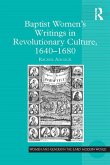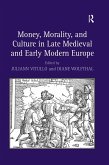If terms are associated with particular historical periods, then polemic is firmly rooted within early modern print culture, the apparently inevitable result of religious controversy and the rise of print media. Taking a broad European approach, this collection brings together specialists on medieval as well as early modern culture in order to challenge stubborn assumptions that medieval culture was homogenous and characterized by consensus; and that literary discourse is by nature eirenic. Instead, the volume shows more clearly the continuities and discontinuities, especially how medieval discourse on the sins of the tongue continued into early modern discussion; how popular and influential medieval genres such as sermons and hagiography dealt with potentially heterodox positions; and the role of literary, especially fictional, debate in developing modes of articulating discord, as well as demonstrating polemic in action in political and ecclesiastical debate. Within this historical context, the position of early modern debates as part of a more general culture of articulating discord becomes more clearly visible.The structure of the volume moves from an internal textual focus, where the nature of polemic can be debated, through a middle section where these concerns are also played out in social practice, to a more historical group investigating applied polemic. In this way a more nuanced view is provided of the meaning, role, and effect of polemic both broadly across time and space, and more narrowly within specific circumstances.
Dieser Download kann aus rechtlichen Gründen nur mit Rechnungsadresse in A, B, BG, CY, CZ, D, DK, EW, E, FIN, F, GR, HR, H, IRL, I, LT, L, LR, M, NL, PL, P, R, S, SLO, SK ausgeliefert werden.









